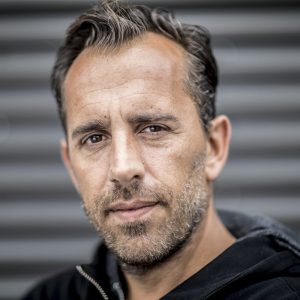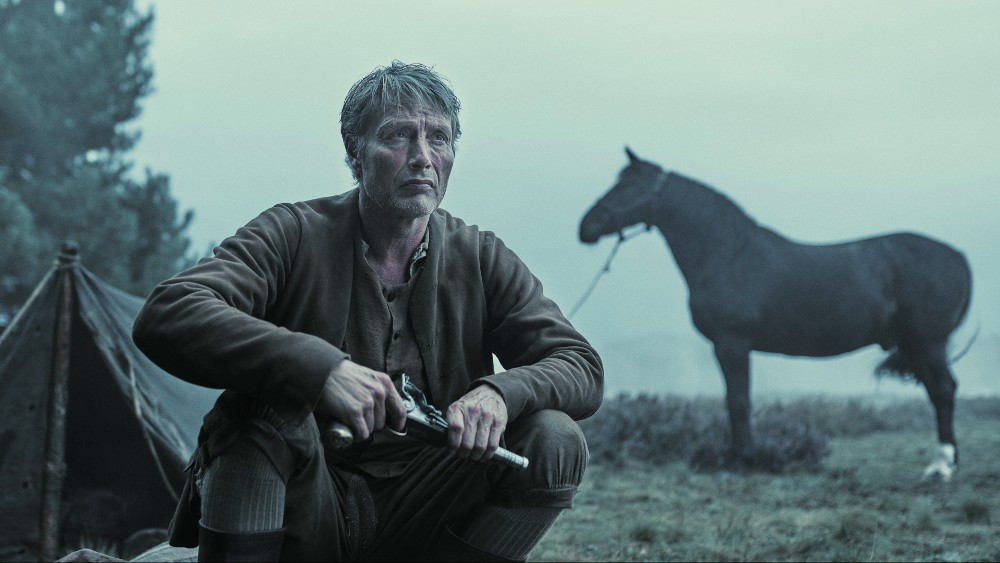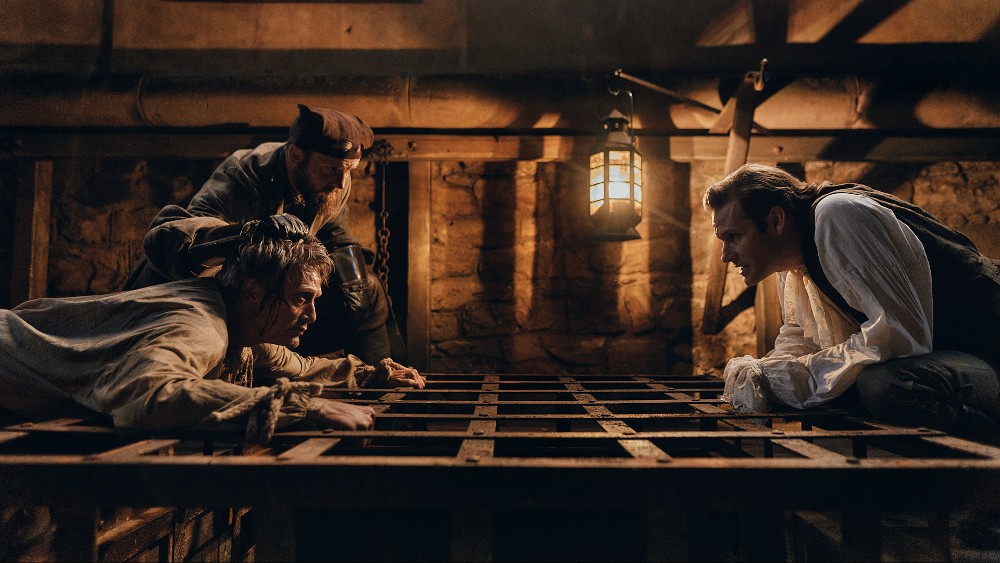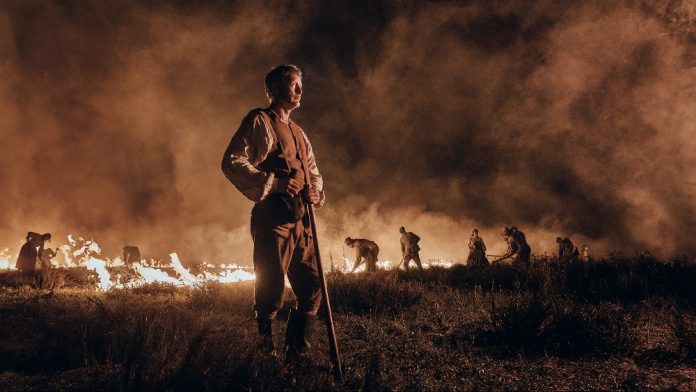For more than twenty years, Mads Mikkelsen has been Denmark’s preeminent acting superstar, having led four of the country’s submissions for the Oscars’ International Feature (formerly Foreign Language) category. 2020’s Another Round became Denmark’s fourth submission to win the Oscar, but previously, he appeared in Nicolaj Arcel‘s Oscar-nominated 2012 costume drama, A Royal Affair, along with then-newcomer Alicia Vikander.
Now, the two long-time friends have reunited for The Promised Land, another Danish submission – this one shortlisted but not nominated – and it also reunites them with Mikkelsen’s other long-time collaborator, screenwriter and filmmaker Anders Thomas Jensen, who directed Mikkelsen in 2020’s Riders of Justice, co-written by Arcel.
Concurrent with his ongoing success in Denmark, Mikkelsen has been making huge headways in Hollywood with starring roles in four major franchises from 2006’s James Bond movie Casino Royale, to Rogue One: A Star Wars Story and Marvel’s Doctor Strange in 2016, and most recently, playing the main villain in James Mangold‘s Indiana Jones and the Dial of Destiny. Arcel also ventured over to Hollywood to direct the 2017 adaptation of Stephen King‘s The Dark Tower, which uncoincidentally, had a screenplay co-written by Jensen.
Jensen also co-wrote The Promised Land with Arcel, continuing his own long-running collaboration with Mikkelsen, who plays Captain Ludvig Kahlen, an 18th Century Danish war hero, who is obsessed with taming the seemingly uninhabitable heath of Denmark in order to build a new farming community for the country’s King. Standing in Kahlen’s way is the ruthless nobleman Frederik De Schinkel (Simon Bennebjerg), who does everything he can to disrupt Kahlen’s efforts, ultimately leading to a violent confrontation.
Last month, Above the Line had a chance to get on Zoom with Mikkelsen and Arcel to talk about The Promised Land, but first, we had to ask Mikkelsen about his long-standing collaboration with Jensen.
Above the Line: You and Nikolaj have done so many movies together, but there’s also Anders, who I’ve never met, never spoken to, but he seems to be this glue that connects everyone in Denmark together. You’ve worked with him a lot, Mads, so can you talk about that first, before we get into The Promised Land?
Mads Mikkelsen: The previous film [A Royal Affair], [Nikolaj] co-wrote with somebody else, and this is the first one I worked with both Anders Thomas and Nic. It was a wonderful experience, because I know Anders Thomas from all these films that he directed. I was sitting there trying to guess who was writing what and how they divided it, and I got it completely wrong. Some of the funny stuff in this one is actually Nik, and some of the darker sides are actually Anders Thomas. So it seems as if they bring the best out of each other.

ATL: I was wondering about that, because you also work a lot with him, Nic. You’re co-writing and co-directing movies with him, so how do you guys decide who is going to direct a certain movie when you’re writing something together?
Nikolaj Arcel: I think that’s an easy choice, because it’s always one of us [who] says, “I have an idea for my next film. Do you want to help write it, or do you want to help do the story or help with the script?” It’s not really us coming up with stories that we could do, either of us. We always know, “This is my film, this is his film,” and then we just help each other out in various capacities.
Mikkelsen: Especially Anders Thomas Jeffers. You would know when you see his films, that this film is not something he would jump into himself. Maybe in the future, but he’s definitely working with his own insane, dark comedy universe.
ATL: I really liked the last movie you did with him, Riders of Justice, but The Promised Land is also quite interesting, since it’s a mix of a Western and a costume drama. It has elements of A Royal Affair, but then it has stuff on the wilderness, a really tough environment. What got you interested in making this? Did you just read Ida Jessen’s book and that got you interested in telling this story?
Arcel: Yeah, that was kind of the thing. I read the novel, I fell in love with the novel, and I actually fell in love with exactly what you were saying. It’s like a mix between a Western and then these old school historical epics, and I love that mix. I love the idea of being out on the heath and the wilderness and trying to survive with these characters, and then at times, you were up there on the ridge and the manors and the fineries. And the rich, noble people. I love that juxtaposition, which seemed to me so kind of crazy and interesting. And that sort of that schism between those two worlds. I love the idea of having tried to marry these two worlds.
ATL: Mads, when do they come to you with this? Do you know about these projects as they’re working on them? Are you in touch with them as friends?
Mikkelsen: Yeah, he pitched it to me before they wrote it. [He] told me I could read the book, but I decided not to; I’d rather see what they came up with. As an actor, yes. Epic, great, Western, great. Obviously, what we’re looking for is some fleshed-out characters, and there’s plenty of them here. An epic film is something you wear like a hat. What is most important for all of us, including Nic and Anders Thomas is obviously, that we have some characters in there that we find interesting, find dualistic. In the case of my character, he’s a very interesting person who wants to be part of something he hates. A man who is so stubborn that he’s willing to not see what’s right in front of him that’s important. In many ways, he’s driving the film in a direction that we would rather have him not drive it. I find that [to be] a very, very interesting character.
ATL: It must be nice that Thomas Anders is thinking of you while writing stuff, Mads.
Mikkelsen: I think he’s thinking of me when he’s not writing as well. He’s always thinking of me. For him, there’s a safety when he can put a face on a character. And then, it turns out that person saying yes is good. If not, we’ll go somewhere else. But I think for many writers [to Nikolaj] I don’t know if you feel the same way, they get an image – whether it’s a Danish or a Norwegian or an American actor, just a face, somebody to get inspired from, and Anders Thomas is definitely doing that.

ATL: What I enjoy about your Danish films is that more often than not, you’re the protagonist, a good guy, even in something like The Hunt, whereas in Hollywood and America, you’re almost always the villain. How does that happen so much?
Mikkelsen: The simple answer is the funny accents, right? I don’t think that’s far away from the truth. We don’t see characters the same way as bad guys or good guys. If you see the first half of this film, I don’t think you would put him in the category of being the hero. He’s not somebody we necessarily like, and that’s very deliberate. We want him to grow as a person throughout the film.
ATL: By the way, Mads, I sat through a press conference with Charles Melton of May December earlier, and he cited something you said about when you play a serial killer, you don’t have to actually be a serial killer all the time.
Mikkelsen: I mean, we are professional liars, and we have to stick to that. The whole idea of becoming a character is absolutely BS, if you ask me, but that doesn’t mean we can’t take it super seriously, and that’s what we do. We visit it, and then we leave it, that’s our job.
ATL: Nik, you have a screenplay, you have Mads, so how do you go about finding the very different locations for this? I assume you shot all at one location first before going to the second one? How do you work that out?
Arcel: Usually, you divide up into exteriors and interiors, and in this case, the exteriors, we were actually fortunate enough to be able to be at the real place where the real historic events took place. We were shooting at the real place where Ludwig had built this house, and we would rebuild that house. That was exciting for us to be there, it felt important for us to be there. That was shot in Denmark. All the interiors we shot in Czech Republic and Germany, so we had to travel quite a lot doing this film for various reasons. There are certain things that you can’t find in Copenhagen and Denmark anymore that we could find in Czech Republic. It was a little bit of a traveling circus with us. Every three or four weeks, we would pull up our tents and move on to another country, another crew. It was challenging, but also fun.
ATL: What I like about this character is that you go from this wilderness where you’re rustically dressed, and then you go into this high society environment, and you’re all cleaned up and dressed up, and going back and forth. How is that, as an actor, to be changing your look so much between these sections?
Mikkelsen: It’s nice. Obviously, when you do a contemporary film, the nuances of what we’re wearing and the cars and the phones we have is something right in front of us, something we recognize. When we go back in time, we get some help right away from the costumes, from a horse carriage. All of a sudden, you are in the middle of something that’s already an imagination, so I find it very helpful to remove myself from my own time period.
ATL: Was there a lot of jumping back and forth, though? I think you mentioned shooting all the outdoor stuff in the wilderness in Denmark, so was that first before you did the exteriors at the castle?
Arcel: We did shoot completely out of chronology, which can be tough sometimes, but that’s just how it goes. The good thing about working – and we have worked together before, Mads and I – is that we trust each other. We know the story very well, we know the characters very well, so there’s a simplicity to having been through the wringer together before. You know that, even if we’re jumping schizophrenically from one scene to the other, you can still rely on each other to know where we are in the story and where we are emotionally and thematically, so that that makes it easier.
Mikkelsen: It makes it much easier, being on the same patients. We’ve worked a lot before, going through scenes again and again, discussing and turning them upside down. When you have an exterior scene where you’re walking frantically with a certain energy into a house and open the door and disappear, and then four weeks later, you do what you do inside the house, we don’t have to go back and look at the footage again. We know exactly what we did. It’s not like, “Oh, what were we doing that day?” We’ve been on the page for so many months now.

ATL: It’s so fluid, and I’m not sure many people will even realize that. We have to talk about Simon, an amazing character and performance he gives. What was it like working opposite of him and how did you cast him? I know he’s done a few things before in Denmark, but not much I’ve seen.
Arcel: He hadn’t done a lot of films. He’d done a little bit of TV and some theater. I think it was a big pleasure. None of us had worked with him before, but he certainly held his own against Mads. I think you can talk about the first casting we did with him.
Mikkelsen: It’s difficult for me. The man has to be in his mid 20s, so that immediately becomes a generation who grew up with Nik and me, watching us on the big screen. There was a little fanboy hat he was wearing when I met him the first time, and since he’s the baddie, and he owns the room, he has to get past that. That was actually no issue for him. He was so annoying, when we did the audition, he was so firmly holding his own ground, and we looked at each other, we were just not in doubt that he was the right person for this. On top of that, he was able to play all the little shifts and nuances, and he does a very smart thing in this film. He feels sorry for himself very often, and it’s such a cool thing to do. It makes him the little boy with all the choice that nobody wants to play with, and I think that’s brutal, and also, beautiful at the same time.
ATL: I’m sure you must get this as well. He plays a character that you love to hate, which you’ve done as well, including Le Chiffre in Casino Royale. Is that something as an actor that you can get some joy out of when people come up to you and praise your work as Le Chiffre or other villains?
Mikkelsen: I know that Simon loved to do this character for that reason, but it also has to be well-written. If it’s not, it just becomes one-dimensional. I think that they did a great job of making a very nuanced villain, even though he is on the bad side of history. There are a lot of layers in him, and I think that’s what every actor is cherishing.
ATL: Nik, you did sort of answer another question I had, because I know this was based on a book, and I knew that Das Schinkel was a real person, but I wasn’t sure about the character Mads played, if he was real and that actually happened.
Arcel: Mads’ character is real, and Das Schinkel, the antagonist, was a real person. A lot of the events that you see happening in the film, especially in relation to going out on the heath and being the first person to grow something on the heath, that’s all real. There are certain things that the novel has fictionalized, which we adapted into the film, but the basic concept of it is a true story.
ATL: I’m quite fascinated by the Danish film industry, because there’s been a renaissance where more Danish films are getting over to the States and other countries in the past 10 or 12 years. Can you guys talk about that, especially you, Mads, since you jump back and forth a lot, and Nik, since you directed the Dark Tower movie a few years back? When you go back to work in Denmark, are you able to still get the budget you need for the movies you want to make?
Mikkelsen: The experience of going back and forth for an actor is very different than it is for a director. I jump into somebody’s dream in America or in Denmark. I can call Nik in the middle of the night; I cannot do it with an American director in the same way. Besides that, it’s still my job, I still have to create a little space that is very intimate to make the scene work. On the other hand, I think that the director, being the boss of everything, is a very different experience, and I think you should talk about that.
Arcel: I mean, it is a different experience. It’s not the same working on a big US studio film. It’s not quite your film, whereas it’s a lot of people’s property. But when you’re back home, the pleasure of working in Denmark is that you have final cut, it’s your vision, it’s your playground. That’s why, as a director, it feels more wholesome for me to be in Denmark making movies, and we can do everything that we want, the way that we want to do it, which is nice.
The Promised Land opens in select cities on Friday, Feb. 2.



